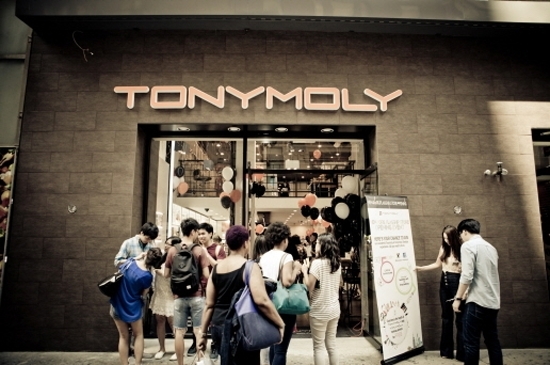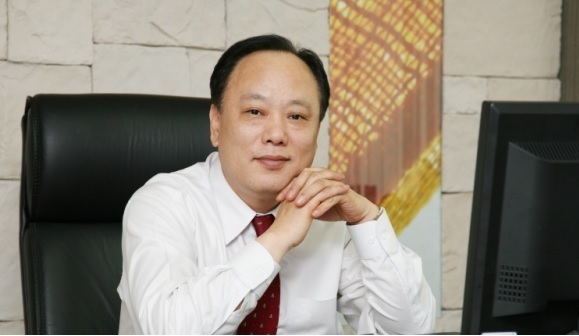 |
TonyMoly's New York store (TonyMoly) |
Korean cosmetics brand TonyMoly’s appointment of yet another CEO is causing concerns that the firm may be standing on shaky ground internally, despite growing sales.
TonyMoly is a popular budget cosmetics-maker in Korea that ranked fourth in the segment last year in terms of sales. It has been making efforts to further expand its overseas business, which currently includes 1,800 shops in 20 countries.
Earlier this month, TonyMoly appointed Yang Chang-soo as the new CEO, only eight months after the founding president Bae Hae-dong took the office in February.
In fact, this marks the company’s fifth leadership change in the past two years, a highly unusual case even for a midsized company in Korea.
Industry watchers are saying the frequent leadership transition signals potential risks in future sales, raising questions on the soundness of the firm’s management structure and its overseas expansion.
“Five CEOs in a two-year period hints at some unknown internal disputes,” a market watcher was quoted as saying in a local report.
One good example of failure due to management problems is Missha, a once-dominant rival company in the budget cosmetic market.
Last year, Missha saw its operating profit drop a whopping 48.8 percent to 6.7 billion won, with net profit dipping 79.6 percent to 2.5 billion won. The company said it shut down 40-50 domestic shops just between the fourth quarter of 2014 and this month.
 |
Taesung CNC chairman Bae Hae-dong(TonyMoly) |
The cosmetic firm made headlines earlier this year when Bae took the position. The founder is also the chairman and 50 percent shareholder of Taesung CNC, which has no shareholding structure with TonyMoly but supplies cosmetics containers.
His appointment was seen as an emergency measure to fill the leadership vacuum when former CEO Ho Jong-hwan abruptly resigned only a month after taking office in January.
The internal turmoil took place while the company was readying to go public in July.
It is being speculated that TonyMoly has been hiding its internal problems, possibly resulted by Bae’s micro-management, to get rid of any risks that might hinder the firm's listing
The company has been seeing a rapid growth in the country and abroad, reporting 310 billion won in sales from 600 offline outlets and online stores last year.
It marked the fourth largest sales in the industry, following LG Household and Healthcare’s The Face Shop, AmorePacific’s Innisfree and ABLE C&C’s Missha.
In September, 2013, former CEO Kim Joong-chun left the firm after three years of management. Jeong Eui-hoon took up the baton but quit in eight months in May 2014, and Oh Sae-han managed the firm until he resigned in December 2014.
Since its establishment in 2006, TonyMoly has posted double-digit growth in countries including Hong Kong, the U.S. and Russia.
The spotlight is now on how long the new CEO Yang will be able to keep his position at TonyMoly, which has gained the nickname “CEOs’ grave.”
“When investors evaluate listed companies, the management plays a critical role in deciding the investment. For TonyMoly, it has not given clear explanations on CEO changes even in the past, and this would likely deal a blow to its brand image and investment,” an analyst from KDB Daewoo Securities said, wishing to stay anonymous.
In July, TonyMoly made a strong debut on the benchmark Korea Composite Stock Price Index, seeking to tap deeper into the Chinese market, while expanding shops in the U.S.
By Lim Jeong-yo and Suk Gee-hyun (limjeongyo@gmail.com,
monicasuk@heraldcorp.com)







![[Herald Interview] 'Trump will use tariffs as first line of defense for American manufacturing'](http://res.heraldm.com/phpwas/restmb_idxmake.php?idx=644&simg=/content/image/2024/11/26/20241126050017_0.jpg)

![[Exclusive] Hyundai Mobis eyes closer ties with BYD](http://res.heraldm.com/phpwas/restmb_idxmake.php?idx=644&simg=/content/image/2024/11/25/20241125050044_0.jpg)